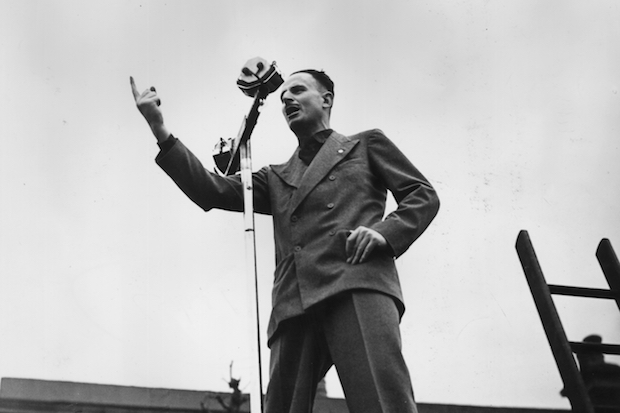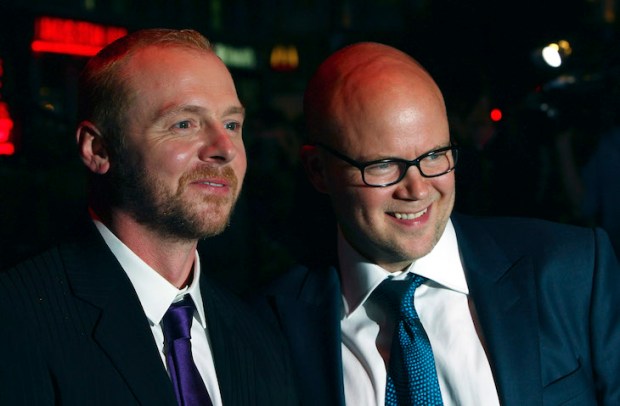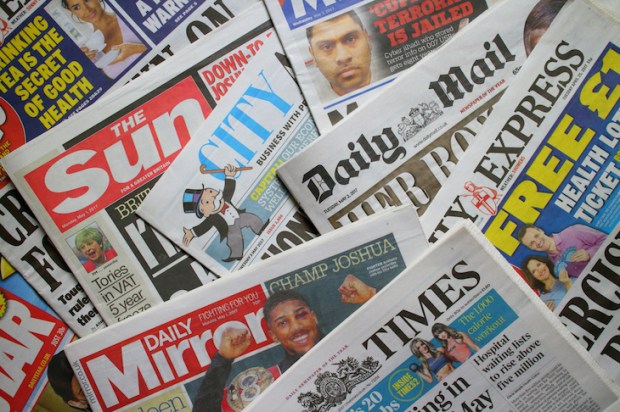In Reflections on the Revolution in France, Edmund Burke warned that ‘pure democracy’ was as dangerous as absolute monarchy. ‘Of this I am certain, that in a democracy the majority of the citizens is capable of exercising the most cruel oppressions upon the minority whenever strong divisions prevail,’ he wrote. He compared demagogues to ‘court favourites’ — gifted at exploiting the -insecurities of the powerful, whether the people or the monarch.
For Burke, the risk of democracies being captured by demagogues then degenerating into tyrannies was a good argument against universal suffrage. The multitude would always be susceptible to being swayed by feeling rather than reason; they could no more be trusted with absolute power than a king or a queen. The answer, he believed, was a mixture of democracy and aristocracy, the one acting as a counterweight to the other.
It’s a curiosity of Burke’s essay that in the 226 years since it was published, his pessimism has proved well-founded about almost every country that has embraced universal suffrage except Britain. Looking at Europe and its neighbours, it’s tempting to conclude that this problem afflicts only immature democracies. I’m thinking of Russia and Turkey, but it’s also a problem in Poland, Hungary and Romania and may yet prove the undoing of France’s fifth republic. Indeed, I suspect the reason arch-federalists like Jean-Claude Juncker and Donald Tusk aren’t that keen on democracy is because it paved the way to dictatorship in Italy, Spain and Germany. You could argue that the EU was established to ‘save’ the Continent from the excesses of mob rule, with unelected commissioners and senior officials standing in for Burke’s hereditary elite.
But Donald Trump’s success suggests that even mature democracies are vulnerable to demagoguery. He is the latest in a long line of populist firebrands stretching back to ‘Pitchfork’ Ben Tillman, the senator who led a paramilitary group and boasted of killing African-Americans during the 1876 election. None succeeded in capturing the presidency, and Trump looks unlikely to do so, but only a fool would rule it out in perpetuity.
Yet Britain has never suffered this problem. The nearest we’ve come is probably Oswald Mosley, but his New Party didn’t win a single seat in the 1931 general election and the -British Union of Fascists — his second attempt to break the mould — was equally unsuccessful. Rabble rousers of the left –— Tony Benn, for instance — have fared a little better, but never wielded much power. The closest we have today is probably George Galloway, and he couldn’t even win Celebrity Big Brother, let alone the London mayoralty. Nigel Farage? He’s less like a demagogue than an old-fashioned music hall entertainer — more Archie Rice than Alf Garnett.
How have we remained immune? George Orwell pondered this question in England Your England and suggested that, for one thing, our love of liberty runs too deep. We are a nation of people who loathe being bossed about, and that makes us inherently suspicious of those seeking to wield power over us. For another, there’s the inherent gentleness of the English character. ‘You notice it the instant you set foot on English soil,’ he wrote. ‘It is a land where the bus conductors are good-tempered and the police carry no revolvers.’ We are patriotic, but our patriotism is expressed as affection for heroic failures and military disasters rather than tub-thumping jingoism — Eddie the Eagle, not Richard the Lionheart. Above all, we have a respect for the law, for constitutional legality, even without a written constitution. It’s simply inconceivable that a British Prime Minister would get away with nobbling the highest court in the land, as Poland’s did last year.
I’d add another reason, which is our sense of humour. For the British to become beguiled by a silver-tongued crowd-pleaser they’d have to ignore his or her inherent absurdity — the populist slogans, the arm-waving, the faux sincerity. We could never bring ourselves to vote for Trump — not in large numbers, anyway — because of his ludicrous self-importance. For most of us, the over-engineered hair would be reason enough to laugh him out of court.
So Burke was right about the pitfalls of democracy, but wrong about the one country he hoped would heed his warning. Long may it remain so.
Got something to add? Join the discussion and comment below.
Get 10 issues for just $10
Subscribe to The Spectator Australia today for the next 10 magazine issues, plus full online access, for just $10.
Toby Young is associate editor of The Spectator.
You might disagree with half of it, but you’ll enjoy reading all of it. Try your first month for free, then just $2 a week for the remainder of your first year.















Comments
Don't miss out
Join the conversation with other Spectator Australia readers. Subscribe to leave a comment.
SUBSCRIBEAlready a subscriber? Log in